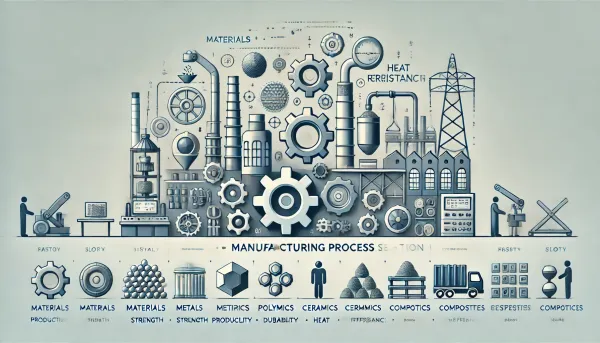Top 10 Industrial Materials Used in the World
The world today is built on essential industrial materials that power infrastructure, technology, and daily life. Below is a table providing an overview of the top 10 industrial materials used globally, including key applications, properties, and environmental impact.
| Ranking | Material widely used | Applications | Properties | Environmental Impact |
|---|---|---|---|---|
| 1 | Steel | Buildings, Bridges, Cars, Appliances | Strength, Durability, Versatility | High CO2 emissions from production, recyclable |
| 2 | Concrete | Buildings, Roads, Bridges, Dams | High Load-bearing, Malleability | High carbon footprint, requires large water usage |
| 3 | Aluminum | Aerospace, Automotive, Electronics | Lightweight, Corrosion-resistant | Energy-intensive production, highly recyclable |
| 4 | Plastic | Packaging, Automotive, Medical Equipment | Lightweight, Versatile | Major pollution problem, non-biodegradable |
| 5 | Copper | Electrical Wiring, Electronics, Plumbing | Excellent Conductivity | Mining impacts include habitat destruction |
| 6 | Glass | Architecture, Electronics, Solar Panels | Transparency, Strength, Moldability | Recyclable, but energy-intensive to produce |
| 7 | Wood | Construction, Furniture, Energy Production | Renewable, Aesthetic | Sustainable if sourced responsibly, carbon storage |
| 8 | Petroleum | Energy, Plastics, Asphalt | High Energy Content, Versatile | Major source of greenhouse gases, non-renewable |
| 9 | Silicon | Semiconductors, Computer Chips, Solar Cells | Excellent Semiconductor | Mining impacts and energy-intensive purification |
| 10 | Rubber | Tires, Seals, Gaskets | Elasticity, Durability, Heat Resistance | Natural rubber is renewable, synthetic has pollution issues |
Key Takeaways
- Steel & Concrete: Backbone of infrastructure.
- Aluminum & Plastic: Lightweight materials for efficiency.
- Silicon & Copper: Driving digital connectivity.
- Focus on Sustainability: The future lies in reducing carbon footprints, recycling, and seeking eco-friendly alternatives.
This data-driven approach highlights the importance and applications of each material, as well as the environmental challenges that must be addressed to ensure sustainable growth.




